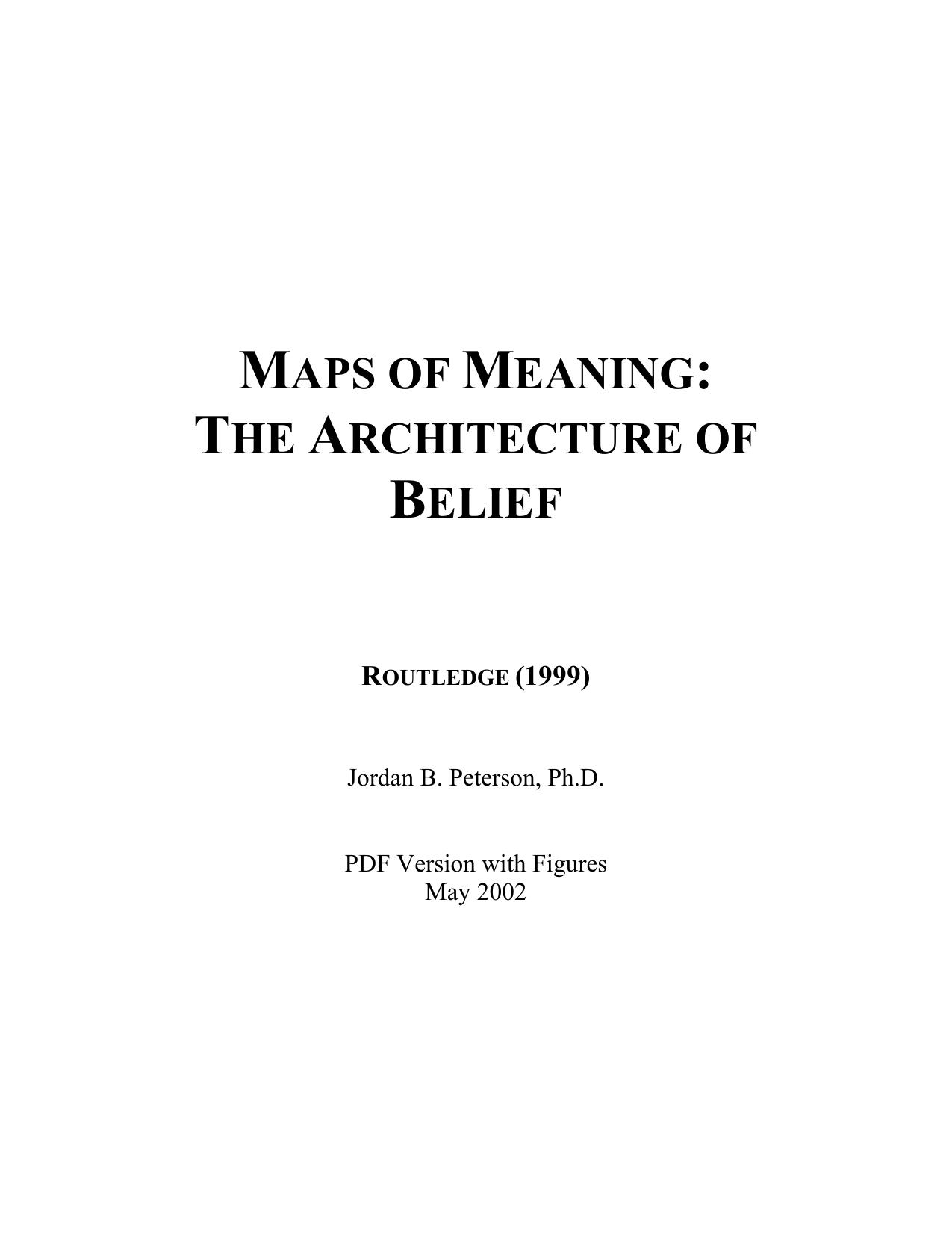Maps of Meaning: The Architecture of Belief by Jordan B. Peterson

Author:Jordan B. Peterson [Peterson, Jordan B.]
Language: eng
Format: azw3, pdf
Tags: Mental Health, Psychology, Philosophy, Religion, Psychotherapy, Mythology
ISBN: 9781135961749
Publisher: Routledge
Published: 1999-03-01T00:00:00+00:00
The Revolutionary Hero
The revolutionary hero reorders the protective structure of society, when the emergence of an anomaly makes such reordering necessary. He is therefore the agent of change, upon whose actions all stability is predicated. This capacityâwhich should make him a welcome figure in every communityâis exceedingly threatening to those completely encapsulated by the status quo, and who are unable or unwilling to see where the present state of adaptation is incomplete and where residual danger lies. The archetypal revolutionary hero therefore faces the anger and rejection of his peers, as well as the terrors of the absolutely unknown. He is nonetheless the âbest friendâ of the state.
Analysis of the archaic ecstatic practice of shamanismâprevalent throughout âthe immense area comprising Central and North Asiaâ423âsheds further light on the nature of the actions and typical experiences of the revolutionary hero. Europeans who made initial contact with these tribal healers frequently deemed them insane. The reverse was in fact true: the genuine shaman was the most sane man of the tribe (that is, the man whose extent of adaptation was greatest). Furthermore, he served as primordial âunified ancestorâ of the lately differentiated or specialized creative agent: explorer, mystic, artist, scientist and physician. The Asian shaman was master of religious life, embodiment and keeper of the sacred doctrine, dominant authority and creator of culture.
The widespread practices and viewpoints of shamanism constitute a cohesive philosophy, so to speak, embedded âunconsciouslyâ in behavior and image. This ritual philosophy comprises a set of observations about the nature of radical personality transformation, and a set of practices designed to bring such alteration about. Shamanism is devoted to furtherance of the possibility of qualitative improvements in âconsciousnessâ or general adaptive ability; it has captured the essence of such possibility in image, to minimize the accompanying terror. Shamanism is prototypical of those religious practices designed to modify human behavior and interpretationâto induce and regulate the processes of spiritual reconfiguration. These practices are not merely cultural in nature. They originate in the observation of spontaneous psychological transmutation, a psychobiologically grounded human capacity. Shamanic rituals are therefore not merely anachronistic, without modern relevance, except as curiosity dictatesâbut prime exemplars of a process we must come to understand.
The shaman is not simply an archaic figure, an interesting anomaly from the dead pastâhe is the embodiment, in cultures we do not comprehend, of those people we admire most in the past. The phenomenon of the âcreative illness,â described in detail by Henri Ellenberger, in his massive study of the history of the unconscious, is alive and well in our own culture. Ellenberger described its characteristic elements:
A creative illness succeeds a period of intense preoccupation with an idea and search for a certain truth. It is a polymorphous condition that can take the shape of depression, neurosis, psychosomatic ailments, or even psychosis. Whatever the symptoms, they are felt as painful, if not agonizing, by the subject, with alternating periods of alleviation and worsening. Throughout the illness the subject never loses the thread of his dominating preoccupation.
Download
Maps of Meaning: The Architecture of Belief by Jordan B. Peterson.pdf
This site does not store any files on its server. We only index and link to content provided by other sites. Please contact the content providers to delete copyright contents if any and email us, we'll remove relevant links or contents immediately.
Rewire Your Anxious Brain by Catherine M. Pittman(18644)
Talking to Strangers by Malcolm Gladwell(13350)
The Art of Thinking Clearly by Rolf Dobelli(10455)
Mindhunter: Inside the FBI's Elite Serial Crime Unit by John E. Douglas & Mark Olshaker(9324)
Becoming Supernatural by Dr. Joe Dispenza(8204)
Change Your Questions, Change Your Life by Marilee Adams(7761)
Nudge - Improving Decisions about Health, Wealth, and Happiness by Thaler Sunstein(7694)
The Road Less Traveled by M. Scott Peck(7594)
The Lost Art of Listening by Michael P. Nichols(7494)
Mastermind: How to Think Like Sherlock Holmes by Maria Konnikova(7324)
Enlightenment Now: The Case for Reason, Science, Humanism, and Progress by Steven Pinker(7306)
Win Bigly by Scott Adams(7184)
The Way of Zen by Alan W. Watts(6603)
Daring Greatly by Brene Brown(6504)
Big Magic: Creative Living Beyond Fear by Elizabeth Gilbert(5756)
Grit by Angela Duckworth(5605)
Ego Is the Enemy by Ryan Holiday(5417)
Men In Love by Nancy Friday(5234)
The Laws of Human Nature by Robert Greene(5179)
